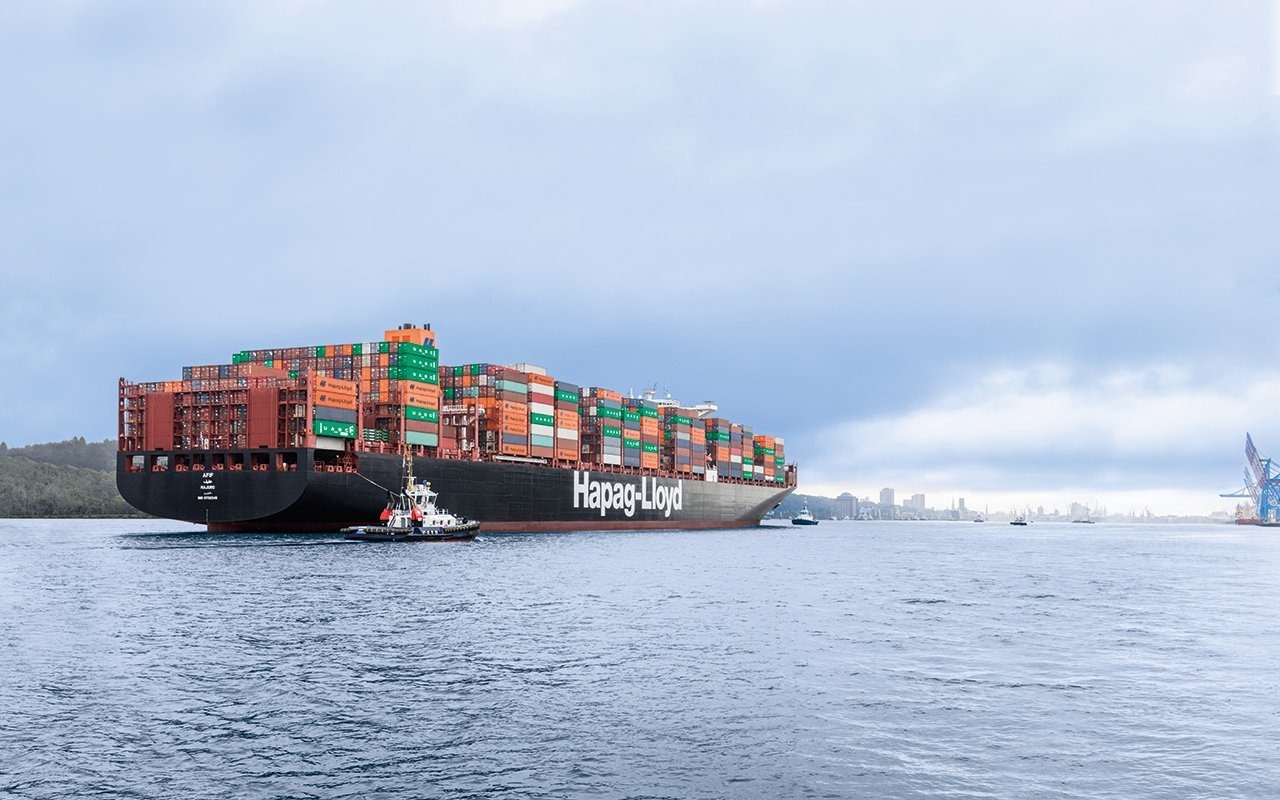
The current disruption of international transport, particularly shipping, has revived the concept of "one-stop shopping", with the result that shipping companies and forwarders are increasingly swapping roles.
In this early part of 2021, the Covid-19 pandemic is continuing to disrupt international transport. Access to capacity is becoming an increasingly serious problem in both the air freight and container shipping sectors and freight rates continuing to stay at extremely high levels.
In shipping, the capacity crisis is in the process of becoming structural, whether it be a question of the number of sailings or container availability, and this has led to a resurgence of the one-stop shopping concept which was very much in vogue in the later 1990s and the early 2000s. The idea is to offer shippers a service covering all their needs. The service provider, therefore, needs to have control of all the different business involved in the supply chain so as to be able to offer an integrated service with world-wide coverage and long-term contracts.
The would-be providers
High freight rates have allowed transport operators to restore or consolidate their profit margins, enabling them to think about new investment. That said, there are a lot of contenders for leadership of the one-stop shopping market.
- The major international logistics companies point out that they already have global freight management know-how, which is indeed the reason for their existence. Most already have experience of road transport management but matters are clearly more complex in the shipping and air freight sectors. Some have developed expertise in these fields over the years after failing to obtain the solutions they needed from their transport providers. Air freight specialist Panalpina has always chartered aircraft to to enable it to reach destinations which are badly served by the airlines.
In container shipping, difficulties in getting access to capacity have incited certain international forwarders to follow the same logic by chartering ships from time to time. This has already been done by DSV and Geodis, for example. These cases of NVOCCs becoming VOCCs have clearly not led to any reduction in freight rates. They are, however, a way for forwarders to offer a real added value service to their customers, as well as winning their loyalty by providing new ways of meeting their needs.
There is no question, however, of them becoming transporters in their own right. Their ability to operate as "asset-light" companies is key to the value they are able to offer their shareholders. They are aware, moreover, that they do not have the bargaining power and expertise to be able to properly negotiate port dues, cargo-handling contracts and fees for pilotage, towage, bunkering and container maintenance and repairs. Each to his own, in other words.
- The major shipping companies, for their part, are beginning to take a close interest in the opportunities offered by the logistics sector. CMA CGM acquired Ceva Logistics with this in mind. The Maersk Group, which included the Damco group, dropped the Damco brand at the end of 2020 and made it part of its own logistics division. Both CMA CGM and Maersk clearly aim to offer their customers a complete and integrated range of transport and logistical services. CMA CGM has even taken matters to a new level by announcing plans to launch its own air cargo service.
The impact of digitalisation
Forwarders and carriers have always been tempted to cross over into each other's territory but without them ever having really done it, at least in Europe. B to B digital solutions are relentlessly forcing the two camps together, however, particularly for spot shipments.
Let us look at the main stages in a digital container shipment from the point of view of shipper having to decide whether to deal with a shipping company or a forwarder.
- Price quote
Both offer an online listing. The prices are quite similar for a complete container, at least on the major routes served by the three big maritime alliances.
- Stuffing and unstuffing in the port zone
The forwarders have a big advantage here. They are well-established in the ports and know how to negotiate the best possible deal for overland services.
- Booking
Both offer booking services but the forwarders again have the advantage in that they can offer a wider of sailings than the company by direct consultation.
- Print-free documentation
Both offer this service, neither side having the advantage.
- Track and trace
Both offer this service, neither side having the advantage.
- Transport insurance
Both offer this service, neither side having the advantage.
- Paper-free billing
Both propose it but forwarders are more open to negotiate on payment deadlines.
- Payment
Both do it, generally now by bank transfer. Beware, however, regarding exchange rates and foreign currency payment agreements, where approaches may differ. It is always a good idea to deal with these questions when asking for a quote.
E-commerce giants lie in wait
The digitalization of business activities, which is proceeding at an ever faster rate, is bringing approaches to marketing closer together. Without wishing to blur any boundaries, we consider that there are, in fact, very few distinguishing factors in terms of digital offers. We can consider that, at this point, the forwarders have a short lead over the shipping companies in this domain by virtue of their ability to offer a wider range of sailings and alternative routing options.
But a third party could join the party in the shape of shippers. Clearly, the cost this would involve is not within the reach of all but the global retailers, who handle enormous volumes of goods, are already in the starting blocks. Amazon obtained an NVOCC license enabling it to offer shipping services to third parties, notably between China and the United States., in 2016 and, in the meantime, is continuing to expand its fleet of aircraft. Alibaba has also shown its appetite for development in the logistics sector.
These new players may well break the balance of power that has so far maintained the boundaries between forwarders and carriers and fundamentally reshape the pattern of international logistics.

Jérôme de Ricqlès
Shipping expert
Our latest articles
-
Subscriber 3 min 24/02/2026Lire l'article -
Hapag-Lloyd - Zim: a shipping deal with geostrategic implications
Lire l'article -
European road freight: the spot market is stalling
Lire l'article


